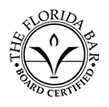Workers' Compensation
PH: 813-224-0000
Workers’ compensation refers to a system of laws outlining specific benefits to which injured employees are entitled, and the procedures for obtaining such benefits.
Workers’ Compensation FAQ’s: 41-60
Yes. You have the right to a one-time change of physician that you may exercise in your case. However, the Employer/Carrier still retains the right to select the new doctor provided that they authorize a doctor within five days of your written request.
Yes. The Florida Workers’ Compensation system is a “no fault” system, meaning that you are covered whether you were at fault for the injury or the employer was at fault. However, there are limits to this principle and accidents caused by “horseplay” are excluded as are injuries due to intoxication. Additionally, there may be a reduction of compensation of 25% if the employee knowingly refuses to use a safety appliance or observe a safety rule required by statute or lawfully adopted by the department, and brought prior to the accident to the employee’s knowledge, or if the injury is cause by the knowing refusal of the employee to use a safety appliance provided by the employer.
Yes. All workers are covered under the law regardless as to whether they are “undocumented”, “illegal” or otherwise.
Yes. Workers’ compensation provides medical benefits and various money benefits for disability or impairment. A “third party lawsuit” is a personal injury action against an entity other than the employer that caused the accident or injury. Personal injury damages may include full lost wages, pain and suffering, loss of consortium and possibly punitive damages.
Yes. Many larger employers are in fact self-insured for workers’ compensation. The same substantive law applies to employees of a self-insured employer compared to an employer that has an insurance company providing coverage. Self-insured employers administer the benefits paid to their employer through a risk management department, servicing agent or third party administrator.
No. There are no benefits for loss of consortium under Florida Workers’ Compensation Law.
Generally, the answer is “no”. Your exclusive remedy is Florida Workers’ Compensation Law and you may not sue your employer in tort. However, there is very limited exception if your employer deliberately intended to injure you, or placed you in a situation where there was a virtual certainty that you would be injured or killed, and the employer deliberately concealed or misrepresented the danger such that you could not make an informed decision about whether to perform the work.
No, you do not have to pay any co-payments, at least initially. Following the date your authorized treating physician places you at maximum medical improvement, you are required to pay a $10.00 co-pay per visit for additional medical treatment for your work-related injury.
Mental or nervous injury due to stress, fright, or excitement only is not covered and not considered an accident arising out of the employment. In order for a mental injury to be covered there must be an accompanying physical injury requiring medical treatment. Additionally, mental or nervous injuries occurring as a manifestation of a physical injury must be demonstrated by clear and convincing evidence which is a higher burden than that necessary to prove a physical injury. Compensation is not payable for the mental, psychological or emotional injury arising out of depression from being out of work or losing employment opportunities, resulting from a preexisting mental, psychological, or emotional condition or due to pain or other subjective complaints that cannot be substantiated by objective, relevant medical findings.
Generally, all settlements are final and cannot be re-opened if they are made in compliance with the workers’ compensation law and in compliance with Florida law regarding contracts. If an employee entering into a settlement agreement is not represented by counsel a different set of rules apply. A Judge of Compensation Claims must consider and enter an order approving any settlement in which the claimant is not represented by an attorney. If the claimant was represented by an attorney at the time of the settlement general principles of contract law will apply. A claimant considering entering into a settlement should do so with the understanding that the case will not be able to be re-opened in the future.
Mediation is a non-formal meeting of the parties at which time the parties attempt to either resolve any matters that may be disputed on the claim or settle the claim in its entirety. Mediations are resided over by a neutral third party mediator. The mediator has no power to order either party to do anything they do not want to do other than to appear at the mediation. Mediations are either mandatory or voluntary. Anytime a Petition for Benefits is filed on your claim, you appear at a mandatory mediation before the claims are decided by the Judge of Compensation Claims. Mediation can be a very successful tool for resolving issues that are in dispute or settling the case.
Depositions are formal proceedings where any arty to the case can take sworn testimony from parties or witnesses (Doctors, co-workers, employer representatives and the like). Depositions are a very important part of the litigation process. It is not advisable for any party o attend a deposition without having an attorney to properly prepare them for the deposition and to voice any necessary objections during the course of the deposition.
In virtually all instances the answer is no. In order to seek a remedy other that Workers’ Compensation, an injured worker has to show that their employer or co-employee’s action were such that it was all but certain that it would result in severe injury or the death of the injured worker.
The answer to this question depends on the type of work that the independent contractor is performing at the time they are injured and whether the independent contractor has exempted themselves from workers’ compensation. This is a complex issue that requires the review of a qualified attorney.
For dates of accident occurring on or after 7/1/09, the fees that an attorney can charge an injured worker are limited to 10% of the first $5,000.00, 15% of the next $5,000.00, and 10% of anything over $10,000.00. If the Employer/Carrier is responsible for the payment of the fees, the amount can vary depending on the circumstances.
It all depends on the position the Employer/Carrier takes on your claim. If all efforts to resolve the issues in dispute informally are unsuccessful, you will need to go to court to have the Judge determine whether you will receive the benefits. It is important to understand that a Judge of Compensation has a power to decide how much your case will settle for. In other words, if you want $100,000.00 and the insurance company is only willing to pay $10,000.00, you cannot go to court to ask the Judge to force the insurance company to pay more than the $10,000.00 they are wiling to offer. The only way your case can settle is if both sides agree to the amount.
Only if the insurance does not provide you with benefits requested through the filing of a Petition for Benefits and the insurance carrier does not provide the benefits to you within 30 days of receiving the Petition for Benefits and your attorney is successful in securing the benefits after the 30 days have elapsed from the filing of the Petition for Benefits.
You are not responsible for the other side’s attorney’s fees unless it can be shown that the Petition for Benefits you filed were frivolous or meritless. You are responsible for the other side’s costs if you lose.
Routine travel to or from work to or from home is generally not covered by workers’ compensation. However, there are a few exceptions to the rule that would require a qualified attorney to advocate on your behalf.
UNPARALLELED SERVICE
MAXIMUM RESULTS
UNENDING DEDICATION

By you using this website and the electronic mailbox contained within, you agree not to transmit any case-related documents, including, but not limited to, pleadings, service of process, correspondence or any other case-related documentation of a time-sensitive nature.
YOU ARE NOT ESTABLISHING AN ATTORNEY-CLIENT RELATIONSHIP BY COMPLETING THIS FORM. YOU ARE NOT A CLIENT UNLESS AND UNTIL YOU RECEIVE A SIGNED WRITTEN REPRESENTATION AGREEMENT FROM THE FIRM.









